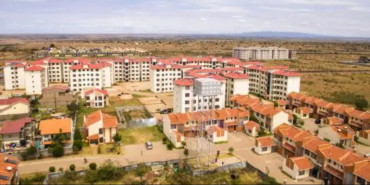Why Nairobi Tenants Can’t Choose Cheaper Internet—and Who’s to Blame

Kenya's Competition Authority (CAK) is intensifying scrutiny of exclusive agreements between internet service providers (ISPs) and property developers, a practice that locks many urban residents into costly and restrictive internet service contracts.
The CAK’s intervention follows a surge in complaints regarding limited consumer choice and inflated internet costs in residential areas. Director General David Kemei has condemned these exclusive deals as anti-competitive, citing Section 21 of the Competition Act, which prohibits business practices that distort or limit market competition.
"It has come to our attention that property developers and estate managers are signing exclusive contracts with specific internet service providers and restricting competing firms from offering alternative services," Kemei said.
This conduct, he argues, denies consumers the benefits of competition, including fair pricing, enhanced service quality, and innovative solutions. The detrimental effects of these monopolistic agreements are acutely felt by many Kenyans, including university student and freelance worker John Kariuki. Until recently, Kariuki was forced to pay Sh3,000 per month for internet service in his estate, despite the availability of more affordable options in the surrounding area.
"I had no option but to pay the amount although it was a lot for someone living alone," Kariuki explained. Upon relocating, he discovered that such restrictive contracts are widespread, with property managers often granting sole access to one ISP in exchange for financial incentives.
These exclusive arrangements have proliferated as Kenya’s internet ecosystem has expanded. The COVID-19 pandemic accelerated the demand for digital services, prompting numerous ISPs to enter the market with promises of fast, robust, and affordable connectivity. However, these promises remain inaccessible for tenants trapped in estates with monopolistic ISP contracts. Consumer frustrations have been mounting, with complaints voiced in online forums, tenant meetings, and directly to property agents.
Under current law, businesses found guilty of contravening competition principles face significant penalties, including fines of up to 10 percent of their annual gross turnover or Sh10 million, and imprisonment for up to five years. While these provisions exist, they have rarely been applied to residential ISP agreements. The CAK’s actions may herald a stricter enforcement regime aimed at addressing this gap. Kemei emphasises the broader consequences of suppressing competition, highlighting the constitutional imperative for equitable access to services. He warns property developers and ISPs to cease these practices.
Supporting the CAK’s stance, the newly enacted National Building Code 2024 introduces stringent standards for telecommunications infrastructure in new developments. These standards require that buildings be designed to support multiple internet service providers, including provisions for network termination points in every residential unit, dedicated cable ducting, and centralised telecommunications cabinets in large buildings.
These reforms are designed to future-proof Kenya’s residential architecture against monopolistic constraints and ensure flexibility for tenants. The Code also supersedes outdated regulations dating back to 1968, aligning building design with contemporary digital needs. It mandates technical neutrality, ensuring infrastructure can support various providers, and prioritises scalability to accommodate future technologies. This positions internet access as a standard entitlement of urban living, rather than a luxury.








Add new comment